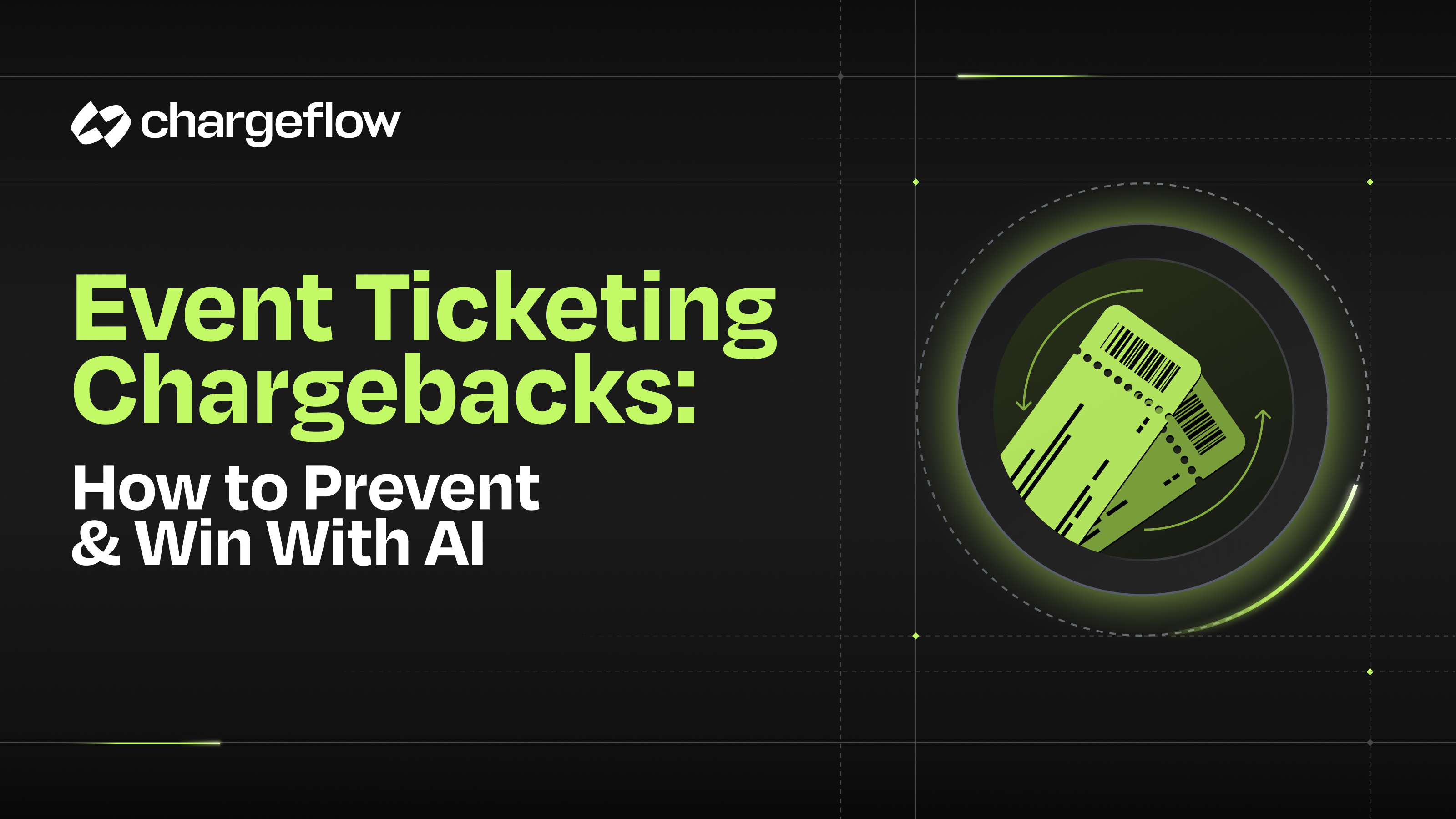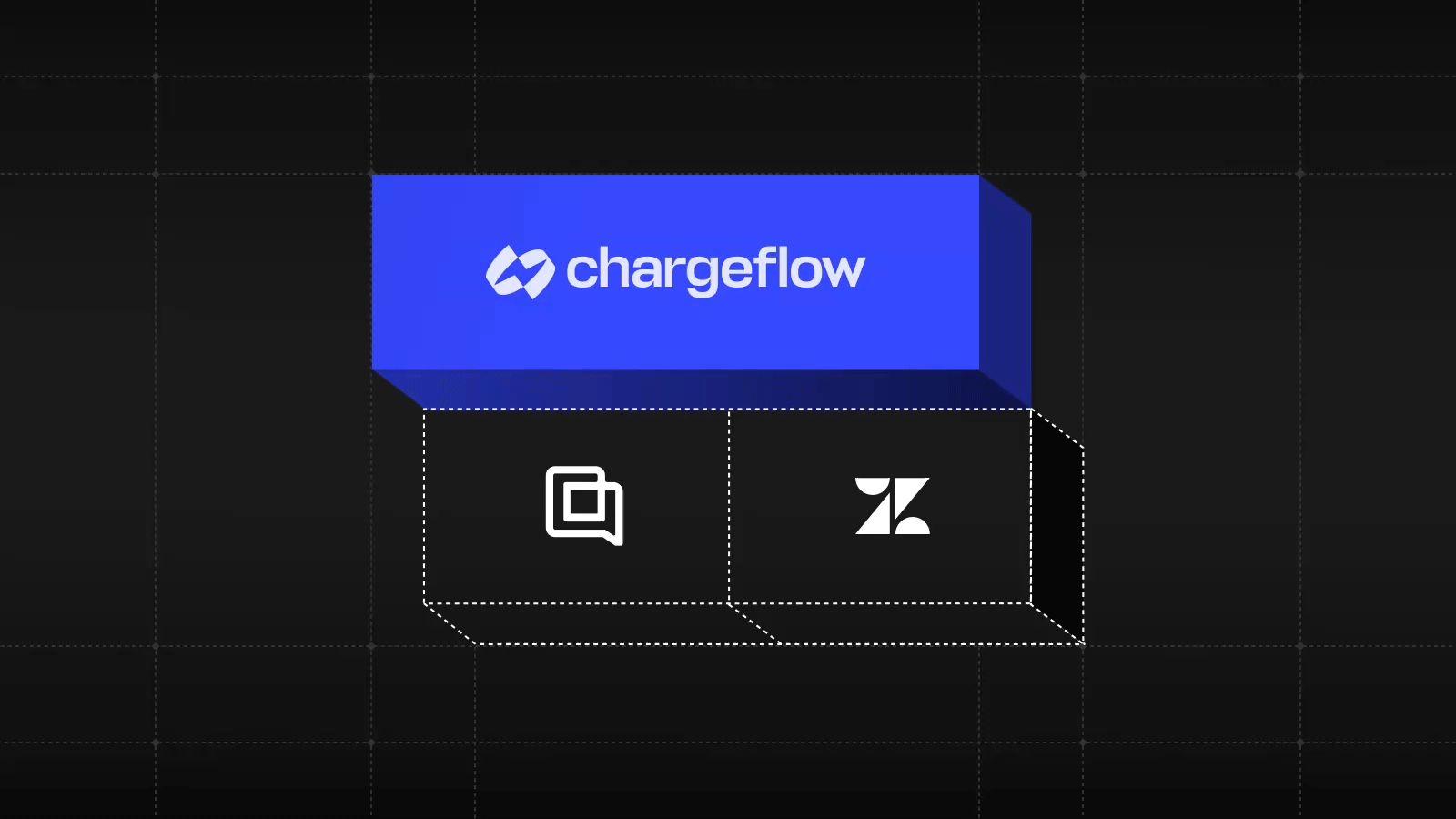PayPal Pre-Chargeback Alert: What Merchants Should Know

Chargebacks?
No longer your problem.
Recover 4x more chargebacks and prevent up to 90% of incoming ones, powered by AI and a global network of 15,000 merchants.
PayPal pre-chargeback alert is a case warning that PayPal sends merchants to inform them about the possibility of receiving a chargeback. Learn more.
Did you know that only 14% of cardholders who file a chargeback contact the merchant before contacting their bank?
If that didn’t get your attention, this one might:
Cardholders who initiate a chargeback dispute are 9x more likely to file another one.
The reason, for the most part, is that the chargeback system is increasingly consumer-centric.
Once a cardholder files a dispute, platform owners and financial institutions often treat the merchant as guilty until proven innocent.
Hence, it’s easy for consumers to commit friendly fraud.
To respond to growing criticisms of their chargeback mediation process, PayPal recently announced a new feature they call pre–chargeback alert.
A pre-chargeback alert is a separate dispute channel alert prompting merchants on the possibility of receiving a chargeback. It helps merchants pinpoint transactions with high probabilities of a chargeback claim and gives them a 20-hour window to issue refunds.
Read on for an exposé on the merits of the new program. And how it can help you stop fraudulent chargebacks.
What’s a Pre-Chargeback Alert?
As the name suggests, a pre-chargeback alert is a case warning that PayPal sends merchants to inform them about the possibility of receiving a chargeback.
Getting the notification does not necessarily mean a consumer has filed a chargeback against you. Instead, a pre-chargeback alert serves as an indicator of an impending case.
PayPal makes the alert available to merchants as a new case in the Conflict Resolution Center.
And you can view these notifications with the "case type" category in the Conflict Resolution Center –which will display the pre-refund alert's row as High Priority.

What Are the Triggers of Pre-Chargeback Alerts?
Since the pre-chargeback alert is an indicator of an impending chargeback, any chargeback identifier will trigger a notification.
We’ve examined the major causes and sources of legitimate chargebacks in this post.
And as we noted in the article, the first reason for PayPal chargebacks is that the cardholder might be a victim of fraud, such as an account takeover. That will lead to an unauthorized transaction.
The other reasons have to do with the customer's order – either they’re undelivered or significantly different from what the buyer saw on your website.
That’s for real cases.
But, as you already know, fraudulent chargebacks make up most chargeback disputes today.
So it’s up to you to do your due diligence on the alert and take the necessary remediation actions.
How You Can Respond to A Pre-chargeback Alert
You can always respond to pre-chargeback alerts in the PayPal dispute Resolution Center.
What you should bear in mind, though, is that PayPal gives merchants a maximum of 20 hours to issue refunds for the transactions they flagged.
If you see the need to take that step, you’d have no liability to fulfill the order or pay any applicable fees.
More so, PayPal said that if you managed to successfully fulfill the order within or after the 20-hour window, you will still be able to provide evidence in the alert.
They will use that evidence to fight the chargeback when it happens.
So, why respond within 20 hours, you say?
Well, responding within 20 hours is your insurance to prevent incurring a chargeback and ancillary chargeback fees, according to PayPal.
If you choose to do otherwise, you’ll get the usual 10 days chargeback response time limit. But you may not sidestep receiving a chargeback or the associated fees.

Pre-Chargeback Alert is a Vitamin, Not a Painkiller
To recap, here are the three stages of PayPal’s new pre-chargeback alerts:
Stage 1: Merchant receives a pre-chargeback alert in the Resolution Center. PayPal sends this alert through a predefined notification channel.
Stage 2: Merchant reviews pre-chargeback alerts with the “Case Type” filter in the dispute Resolution Center. PayPal will mark the row with pre-chargeback alerts as “High Priority.”
Stage 3: Merchant decides whether to issue a total refund within the stated 20-hour deadline. Or stick to the standard process.
From the look of things, pre-chargeback alerts are a welcoming feature.
It’s a good initiative.
But it still does not provide the ultimate solution of stopping scammers and online shoplifters from stealing your hard-earned revenue.
It doesn’t prevent friendly fraud, either. So you need an extra layer of security.
Pairing the pre-refund system with Chargeflow’s fully automated chargeback solution helps you stay on top of your chargeback situation in these times.
- You’ll have insight from over 50 data points to uncover unusual buyer behaviors and thwart disputes;
- The intuitive dashboard gives you crucial AI-generated best practices to optimize transaction process and avoid customer confusion leading to unintentional friendly fraud;
- You’ll get above the industry average ROI – with a success-based pricing option, zero contracts, and so much more.
The peak (chargeback) season is upon us. And you don’t want to be caught unprepared.

Chargebacks?
No longer your problem.
Recover 4x more chargebacks and prevent up to 90% of incoming ones, powered by AI and a global network of 15,000 merchants.












































.png)
.gif)







